Are you trying to determine which type of tire is best for your car? Comprehending the distinctions between summer and winter tires, and all season ones can assist you in making an educated choice when selecting a suitable one. In this blog post, we will analyze their composition, fabrics used as well as meant driving conditions. Performance levels shall be studied too along with factors that are worth pondering about before deciding on any of them plus specific tyre recommendations depending on Edmonton and Calgary’s climatic circumstances.


We at nothing but tires know that it can be confusing when shopping, there are summer tires, winter tires, snow tires, all season tires and all weather tires which means there is a huge complexity to shopping for tires. We are not even discussing the types of tires such as truck tires car tires or even off road tires that are specialized for rough terrain! This articlke si to give the average Canadian a great resource regarding the features and benefits
Key Takeaways
- All season and winter tires are designed differently for different driving conditions.
- Temperature is a key factor in deciding when to switch from all season to winter tires, Occurring at 7°C (45°F).
- It is recommended to use winter tires from October (April and all season tires from May) September in Edmonton & Calgary, Alberta.
Understanding the Basics: All Season Tires and Winter Tires
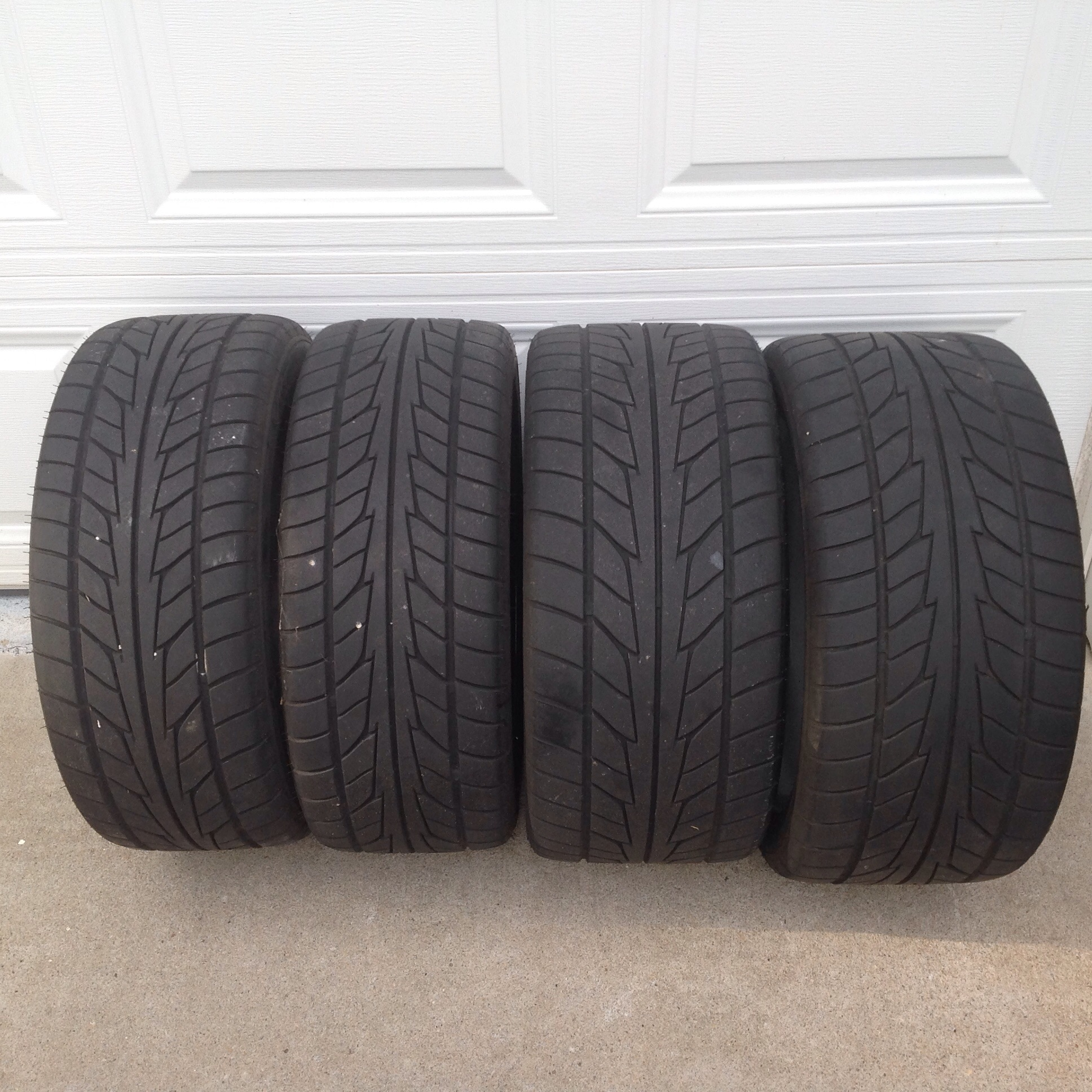
All season and winter tires (sometimes called snow tires) have different functions. All season tires are manufactured to handle all the driving conditions during spring, summer, and fall, while winter tires specialize in managing extreme cold temperatures with snow or ice on the roads. The primary contrast between these two kinds of tires is their building materials and intended use for particular climate periods. Seasonal tire designs reflect specific characteristics that make them suitable for various road surfaces according to respective climatic needs, creating a stronger grip when chilly weather arrives compared to other types like all seasons which perform optimally under milder temperature climates.
Construction and Materials
All season tires are designed with a tougher tread rubber that is suitable for all types of conditions, including wet roads and light winter use. Winter snow tires oror also known simply as snow tires, have softer compounds to keep flexibility during colder weather and allow them to provide better traction in icy or snowy circumstances. They feature more elaborate patterns as well as deeper depths which serve the same purpose, superior grip on slippery surfaces like sleet or slushy ground. A wise move would be taking advantage of any discounts available while purchasing your set of winter tires. This will assure an enjoyable yet secure drive even under lower temperatures throughout the whole chilly season.
Intended Driving Conditions
All weather tires, otherwise known as all season tires, are designed for different terrains and climates. They provide reliable handling in wet conditions and can be driven even through light snowfall. These tyres cannot take on extreme winter climate such as heavy snow or ice, a task that is better left to specialised winter tyres. Summer tyres excel when it comes to dry roads during warmer temperatures due to their unique composition giving superior traction in those scenarios than the typical all-season tyre does. Winter models have been engineered with colder temperature environments alongside snowy surfaces of ice into consideration. Making them more suitable for areas which frequently experience harsh winters compared to other types of weather specific treads like all seasons ones.
Performance Comparison: All Season Tires vs Winter Tires
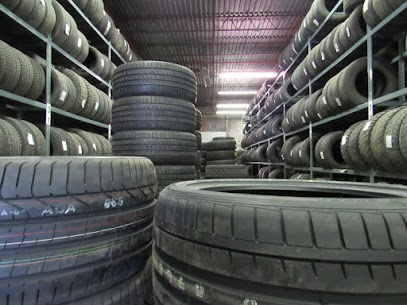
When considering the various performance levels on wet and dry roads, as well as snow-covered surfaces, there is a noteworthy difference in how winter tires measure up to all season tires when pitted against summer and winter versions. All season tires are designed with providing safety along with efficiency for driving conditions across most of the year. They can not provide comparable traction or durability that can be found from purely seasonal designs such as winter tyres during colder months where icy road conditions often arise.
Wet and Dry Roads

Considering your local climate and driving conditions is essential when selecting the right tires for you. All season tires tend to have satisfactory traction in both wet and dry conditions. Winter tires are made especially with cold temperatures as well as snow in mind, so they may not provide the same grip on those surfaces like all season ones do. It’s important to pick which tire type best suits your needs depending on these two elements.
Snowy and Icy Roads
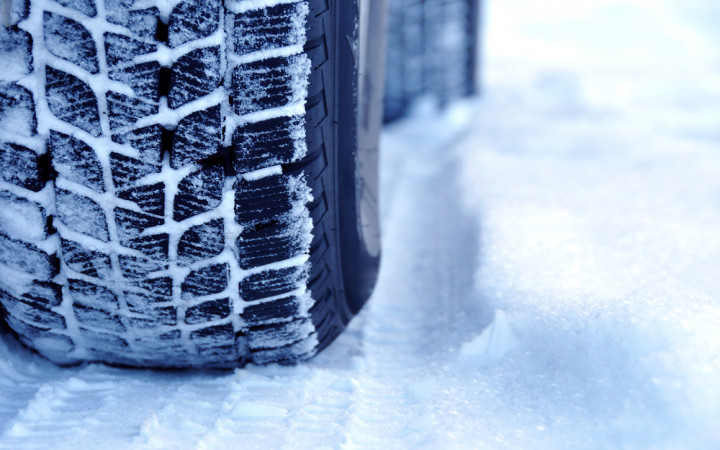
When it comes to roads covered in snow or ice, dedicated winter tires (also known as putting on snow tires) are clearly the best option for superior traction and handling. These specific types of tires have a softer rubber compound than all season models and their full tread depth and design is specially crafted for icy conditions.
In contrast, regular all season tires can struggle with grip due to their tougher material composition along with its less aggressive patterned design – which makes them ill-suited when faced with challenging snowy surfaces. So if you reside in an area where severe winter weather hits hard investing in some specialised tyres could make your drive much safer.
Factors to Consider When Choosing Between All Season and Winter Tires

When determining between winter tires and all season ones, one should keep in mind geographical location, climate as well as driving habits. These factors help you make a sensible decision that is suitable for your requirements while ensuring safety when on the road and an enjoyable drive experience.
Geographical Location and Climate

If you live in an area with a moderate climate, all season tires are likely to be suitable for your needs since they can manage different weather conditions adequately. If wintertime brings heavy snow and icy roads where you’re located, then winter snow tires may be the better option. They provide optimal traction on such terrain compared to their all-season counterparts. It’s wise not to underestimate how much of an impact seasonal elements might have on tire selection.
Driving Habits and Safety Concerns

When deciding between winter or snow tires and all season ones, it is important to consider your driving habits and safety preferences. If you find yourself on roads covered in snow or ice quite often, then investing in a set of dedicated winter tires would be beneficial for additional control during these treacherous conditions. If the majority of your journeys are taken through wetter environments with light winters present only occasionally, opting for an all season tire may better suit those needs instead.
Cost and Convenience: All Season Tires vs Winter Tires
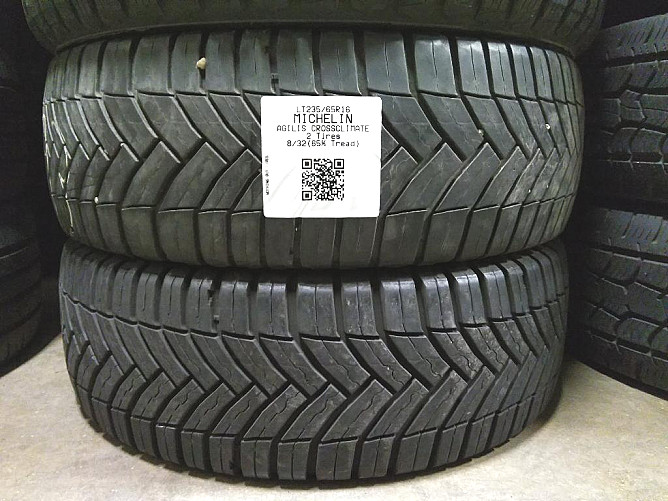
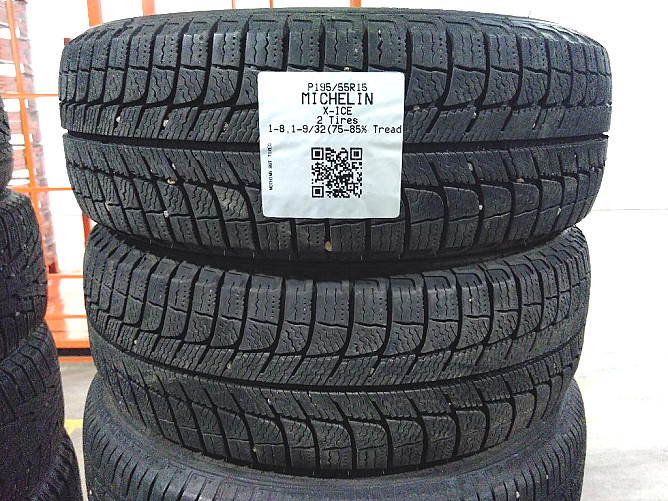
When deciding between winter snow tires and all season tires, performance in different driving conditions along with cost and convenience must be taken into consideration. Let’s examine the distinctions of purchase price, installation costs, storage needs, and maintenance for both types of tires.
The initial outlay when buying all season tires is Lower compared to that required by winter ones. Installing them can also require extra expenses depending on size or number purchased. For storing each type, a secure area away from extreme weather is necessary. Yet.
Purchase Price and Installation
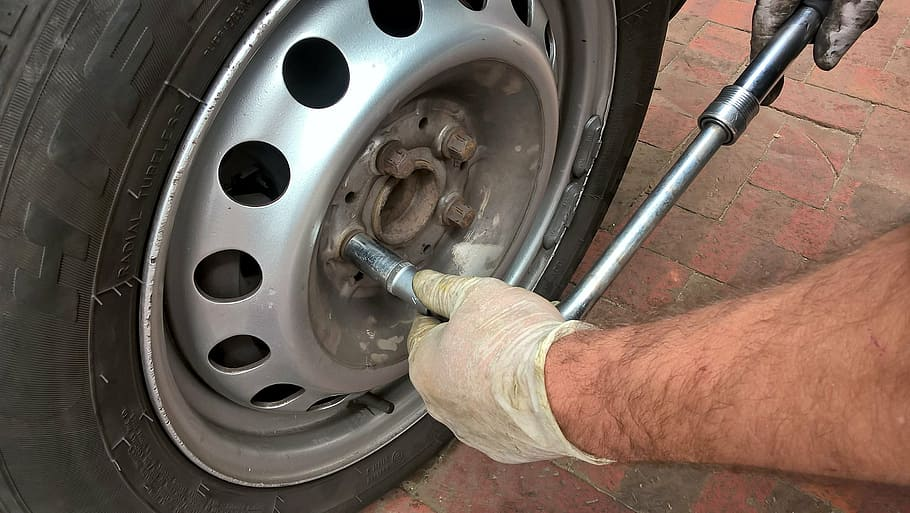
When comparing prices, all season tires come out on top with their lower initial cost. This makes them an attractive choice for drivers who are mindful of how much they spend. No installation required either. You don’t have to bother swapping your tires every winter when going with this option!
If purchasing a set of winter tires or snow tires is the decision made, then be prepared as these typically require higher upfront costs and extra labor in having it put up each frosty season.
Storage and Maintenance
Winter snow tires need to be stored during the colder months due to their inability to use all year. Good storage methods help maintain optimal performance and safety from winter tyres when they are fitted while cold. On the other hand, All season tires do not require such consideration as they can be used year round. Thus eliminating any worry of where you might store them or costs associated with having a secondary set of wheels.
Making the Switch: When to Change from All Season to Winter Tires

It is essential to understand the optimal time for changing from all season tires to winter ones in order to ensure top performance and safety. When a few snow flurries start or winter months are coming and we are starting to see winter temperature thresholds along with weather forecasts dropping it can help you make an informed decision on when it would be best to switch between tire types.
Temperature plays a significant role in deciding when switching out your vehicle’s wheels should occur, typically once temperatures start dipping below 45F or 7C then snow rubber must replace any other type of treads already used -all season being one-. With this information at hand, you’ll know exactly when it’s necessary to upgrade.
Temperature Thresholds

When temperatures fall below 7°C (45°F) on a consistent basis, it’s suggested to switch to winter tires. This is because they are specifically designed with rubber compounds that stay supple and provide enhanced grip in cold weather conditions as well as superior traction when driving over snow or ice. Snow tires can handle extreme winter conditions in winter seasons. Through this change, you will ensure maximum safety and functionality while navigating any winter roadways providing winter tires during teh winter season means you will enjoy a far safer and a quiet ride for our harsh winters.
Most winter tires can be key for making sure your vehicle has the best possible performance during such adverse circumstances. Thus their use should not be overlooked once the necessary temperature threshold has been reached.
Monitoring Weather Forecasts

If you pay attention to the weather forecasts, then you can determine when is the most suitable time to switch from your normal all season tires over to winter or ‘weather’ tires depending on temperatures and conditions in your area.
It’s essential that once temperatures surpass 7°C (45°F) consistently for some days, you change back into ordinary season tires as this will ensure that performance capabilities of winter ones remain intact and serve more winter weather or harsh winter conditions, or extreme winter conditions.
Recommendations for types of tires for Edmonton and Calgary Alberta driving conditions

When it comes to driving in Edmonton and Calgary, Alberta – especially during the colder months (October to April) – winter tires are strongly recommended for optimal winter performance capabilities offering deeper tread depths, safety, and longevity of your tyres. When transitioning into the warmer period from May to September, all season tires should be fitted so you can enjoy a smooth ride while maintaining vehicle condition. This approach ensures that regardless of climate conditions or road quality you receive maximum satisfaction with each journey!
Frequently Asked Questions
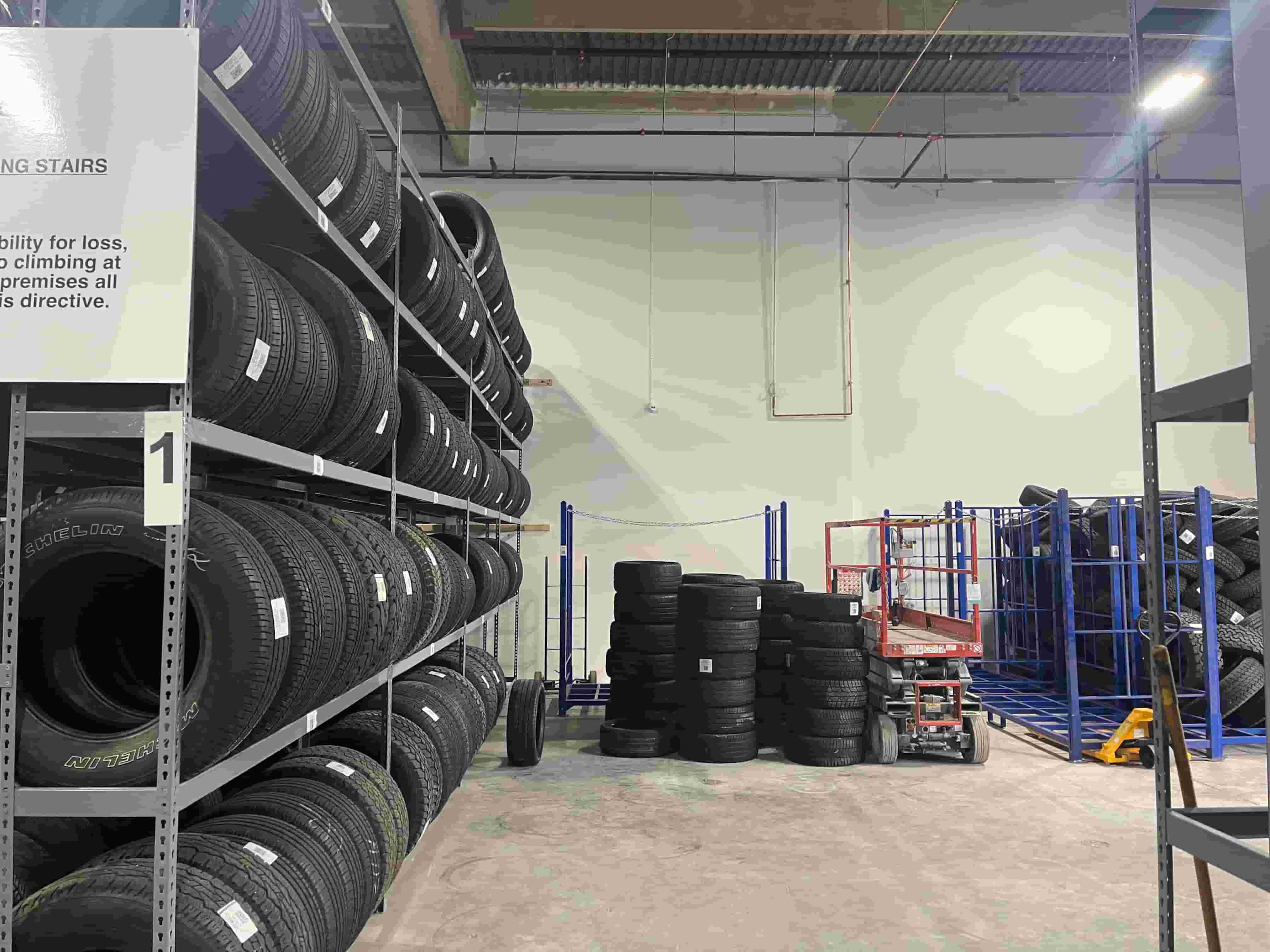
When selecting the right tire for your needs, let’s examine some of the fundamental differences between mounting winter tires and all season tires. Winter tires are designed to perform optimally in lower temperatures than their all-season counterparts. They feature unique tread patterns which allow them to grip cold roads more securely during colder months and even snowy conditions, something that regular seasonal tires simply cannot do as well under similar circumstances. On the other hand, summer or “all season” tyres have a longer useful life span but don’t provide enough protection against hazardous low temperature driving environments like those found around this time year.
Frequently asked questions about winter tires
Winter tires are specially designed to optimize traction and gripping power during icy or snowy conditions, while all season tires have the ability to perform well on both wet and dry roads. When it comes to longevity of usage, it is best practice for winter tires to be replaced after three-four seasons of use. On the other hand, all season tires can last longer in different climates over an extended period due to proper upkeep.
Frequently asked questions about all season tires

All season tires can provide a good performance in wet, dry, and mild winter conditions but do not match up to winter tires when the weather gets very cold. As far as their durability is concerned, all season tires tend to last quite some time with proper maintenance.
In contrast to regular season rubber, which cannot cope well on icy surfaces. Winter treads are specifically engineered for snow icy conditions, hard packed snow or slippery grounds making them more efficient than standard ones during those times of year such as the holiday season that require higher traction levels due to hazardous roads from ice build-up. Enjoy cold confidence with another essential safety measure for both your front and or rear wheels. Moderate climates ususally do not require any over the top precaution.
Summary
When it comes to deciding between winter and all season tires, there are certain variables that must be taken into account. Such as your geographic region, local climate conditions, driving style preferences and personal choice. Weighing up these factors should result in a safe yet enjoyable ride no matter the time of year. Understanding the advantages or disadvantages of each tire type will help you make this decision confidently.
Frequently Asked Questions
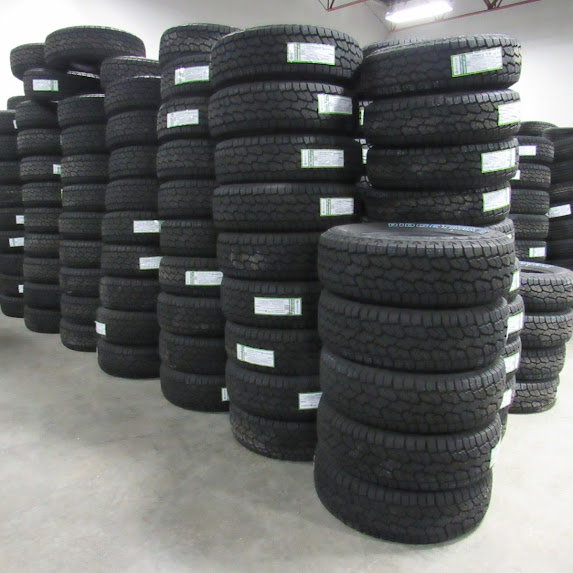
Are all season tires good for a harsh winter?
All season tires provide traction during mild winter weather. They are not meant to be used for deeper snow and ice or colder temperatures the special tread rubber compounds respond the best for harsh winter, such rubber compounds with propert tread depths offer great winter performance. If a driver will have extended exposure to the cold, it is best for them to invest in proper studded winter tires or snow tires. All-season rubber has some use while driving through periods of frigid conditions, but dedicated season tires should always be employed when maximum performance and safety is desired.
Can you use winter tires in the summer?
Winter tires have a different rubber compound than summer tires, which makes them more effective at providing grip in cold weather. This same material can lead to over-inflation and blowouts when used during the summer months because it does not disperse heat as well. Consequently, using winter tires for the hotter season is strongly discouraged due to these risks they present. Although winter tires perform better in freezing temperatures, putting snow tires on your vehicle in warmer conditions versus winter driving conditions means you will have abnormally fast tire wear as snow tires are designed with softer rubber compounds.
How long do all season tires last?
The life of all-season tires is dependent on certain conditions, such as maintenance habits and the driver’s style. With appropriate upkeep and careful driving techniques, one can extend their tire lifespan to last three to five years or more based upon annual mileage driven among other variables. All season vehicles require specific attention in order for them to reach peak performance throughout every season. Proper care should be a top priority when it comes to these essential parts that keep your vehicle running smoothly through any climate condition.
What is the main difference between all season and winter tires?
Winter tires are created to provide optimal performance in cold temperatures, snow and ice. While all season tires have been designed with a wider range of conditions in mind. Both types specialize for the respective weathers that they’re suited for – winter or all-season.
When should I switch from all season to winter tires?
When the temperature stays low, around 7°C (45°F), it is advisable to switch over to winter tires. These specially designed tires offer enhanced grip on icy extreme temperatures and surfaces due to their soft rubber compound which remains flexible despite cold temperatures. They feature a specific tread pattern that gives them improved traction with regular summer tire front ones.
Here are some of Nothing But Tires Resources:
Understanding Tread Rubber compounds
Handle extreme winter conditions
Looking for help navigating the purchase and transition from summer to winter tires cost, to snow or all weather tyres? no problem Nothing But Tires offers a huge selection of rubber to meet your needs and budget! Contact our team and get informed help with the experts. With exceptional experience in providing both new and used tires and from full sets or a single tire to replace damaged unit, we are here to help!
